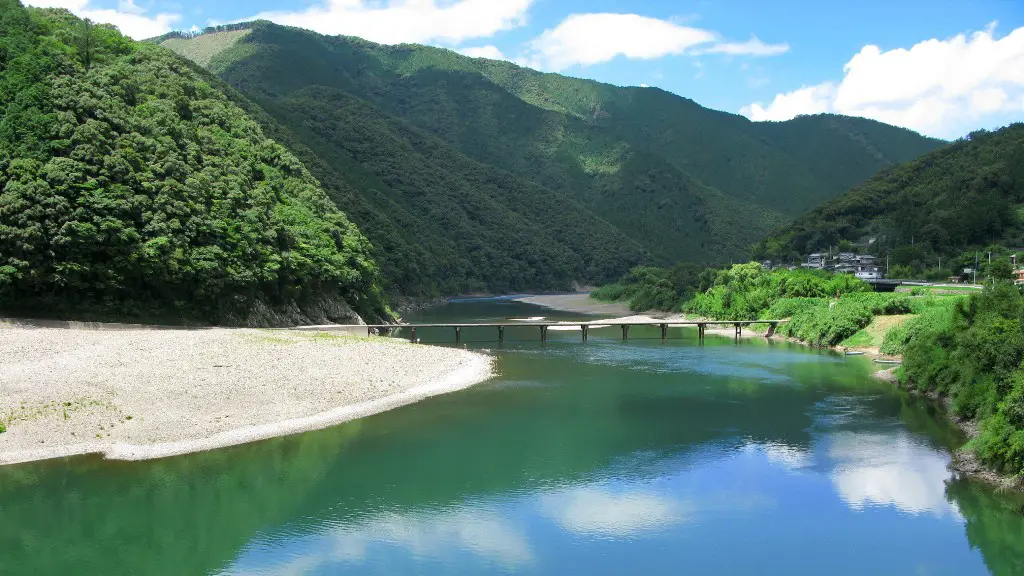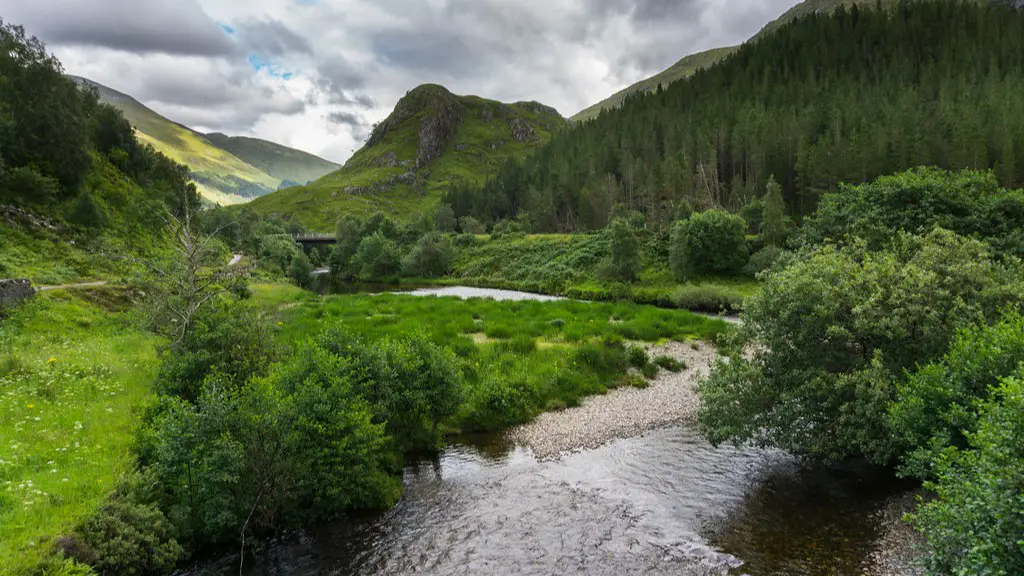Economic Consequences
The Mississippi River is an essential waterway, linking 31 states and two Canadian provinces and forming the basis of the fourth largest economic region in the world. It supports a diverse range of industries, including agriculture, shipping, manufacturing and tourism. The ripple effects of a drying up of the Mississippi would be felt throughout the region and beyond.
In the immediate term, a drying up of the river would mean a reduction in shipping – one of the Mississippi’s fundamental economic activities. The waterway connects commodities traders and suppliers, providing a link between Midwest crops and ports worldwide. Without it, transportation costs for bulk goods would become so expensive as to make trade prohibitive.
Agricultural production, another major part of the economy, would also be impacted. A reduction in the river’s flow would alter habitats, leading to altered crop populations and reduced water availability for irrigation. Lower crop yields would mean fewer jobs and greater instability for the agricultural sector.
Environmental Impact
The Mississippi River serves as a habitat for a wide variety of aquatic species, some of which live exclusively in the river. As the river dries up, species would decline and eventually disappear, as they are unable to adapt to a changing environment.
The drying up of the Mississippi would also result in decreased runoff, leaving the surrounding land unable to support a wide range of wildlife. This could lead to species being driven away due to habitat loss, a decline in food sources and overall ecosystem disruption.
Structurally, a drying up of the Mississippi River could result in the formation of sinkholes, as it no longer flows underneath the existing riverbed. This could further damage existing infrastructure along the riverbank and cause erosion of the surrounding land.
Impacts On People
The decrease of water in the Mississippi River would have a serious effect on the local communities living along the riverbanks. Many communities rely on the river for drinking, washing, swimming and fishing. Without this resource, people would have to find alternative sources for each of these activities.
The absence of the river would also lead to a decline in recreation activities, such as swimming, boating and water skiing. This would obviously affect the communities who rely heavily on tourism for their income, as well as the overall lifestyle of local residents.
Potential Solutions
Efforts are being made to conserve the Mississippi, both on a large and small scale. These efforts range from legislative action to water conservation initiatives, designed to help curtail water use and promote responsible water management.
One possible solution to a drying up of the Mississippi is to reduce the needs put on the river. To achieve this, more efficient farming techniques could be employed that don’t rely on the excessive use of water. Additionally, the efficiency of water management systems could be improved.
Also, the promotion of green technology, such as electric vehicles, could reduce energy consumption and help to conserve water.
Political Implications
The drying up of the Mississippi would undoubtedly have political implications for the region. Reduced trade and agricultural production, combined with mass migration and ecosystem disruption, would be difficult for any politician to address.
The lack of water from the river would place greater pressure on the area’s population and the infrastructure available to support them. This could have far-reaching implications, from increased taxation to social unrest, as well as increased crime rates.
Ultimately, the region’s political leaders would be faced with difficult decisions about how to best address these challenges without further damage to the environment or economic decline.
Climate Change Links
It is no secret that climate change is placing unprecedented demands on the world’s water resources. More frequent and more intense droughts, combined with rising temperatures, are making it even more difficult for some of the world’s rivers to maintain sufficient flow to sustain their ecosystems.
The Mississippi River is no exception. In 2020, the river experienced an unprecedented drought, leading to a number of water management and conservation efforts. This indicates the significant impacts climate change can have on the environment, with further droughts likely to follow in the years ahead.
Public Awareness Issues
The challenge facing the authorities responsible for the Mississippi River is to raise public awareness of the issue. If people are not aware of the situation, they are likely to keep using the river’s resources beyond sustainable limits.
Public education campaigns are needed to ensure that people understand the importance of the Mississippi River, its future and its contribution to the economic, environmental and cultural life of the region.
Without strong public buy-in of water conservation techniques, the risk of water scarcity will continue to increase. Furthermore, without an increased public understanding of the importance of the river, its future will continue to be uncertain.
Changing Expectations
The Mississippi River should be seen not only as a provider of resources, but also as a cultural hub. The river serves as a major artery, transporting people and goods throughout the region, as well as sustaining the lives of millions of people, both directly and indirectly.
When the Mississippi River dries up, people will have to readjust their expectations and accept the changes to their environments with open minds and practical solutions.
Ultimately, the river is part of, and contributes to, the identity of the people who live along its banks. It is essential, therefore, that the local people and authorities take steps to ensure that the Mississippi River remains intact, providing opportunities and solace for the communities that rely on it.
Policy and Regulations
A vast majority of the water that feeds the Mississippi River is regulated. This implies that, absent a change in policy and regulations, the river’s flow is likely to decrease significantly as we move forward.
The current regulations, whilst providing some vital protection for the environment, are outdated and don’t tackle the biggest issues facing the river today. The regulations should be revised in order to ensure that resources are managed more sustainably and to encourage public involvement and the adoption of best practices.
More specifically, regulations should be put in place to ensure that activities that could lead to a drying up of the Mississippi are curtailed, whilst still leaving scope for water-intensive industries to thrive. This would ensure that the river’s full potential, both economically and environmentally, is not lost.
Technological Solutions
Technology has an important role to play in the preservation of the Mississippi. New technologies are being developed to monitor water levels, predict future water levels and minimise water wastage.
Water-monitoring apps, for example, could provide timely information on water trends, alerts regarding possible threats and expert advice on how to conserve water. Additionally, desalination and water reuse technologies enable water reuse and water savings, both of which are essential for protecting the river.
Finally, technologies that enable more efficient and automated irrigation systems would help farmers to reduce their water consumption, and therefore contribute to the overall health of the Mississippi.
Climate Change Adaptation Initiatives
Climate change is clearly having an impact on the Mississippi River, and additional steps are needed to ensure its future. Conservation efforts are key in this regard, with particular attention paid to reducing water consumption and increasing public awareness.
Furthermore, adaptation initiatives should be implemented in order to future-proof the river. Solutions could include constructing artificial wetlands and reforesting upstream areas to encourage additional water infiltration. This could help to reduce water wastage and protect the river against increased risks of drought.
Ultimately, climate change adaptation initiatives should be tailored to the specific needs of the region, in order to guarantee sustainability and continued access to the resources the Mississippi River provides in both the short and the long terms.


